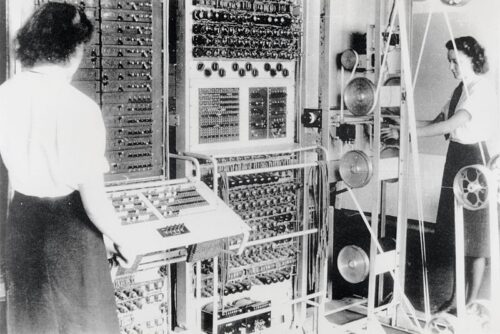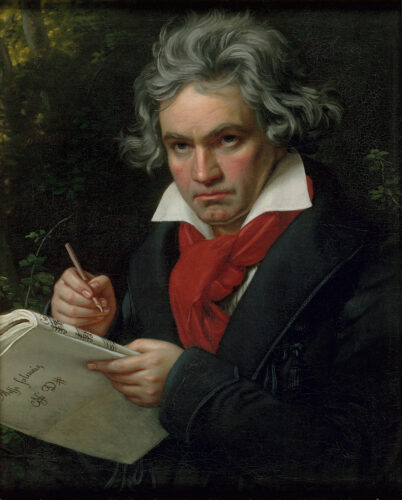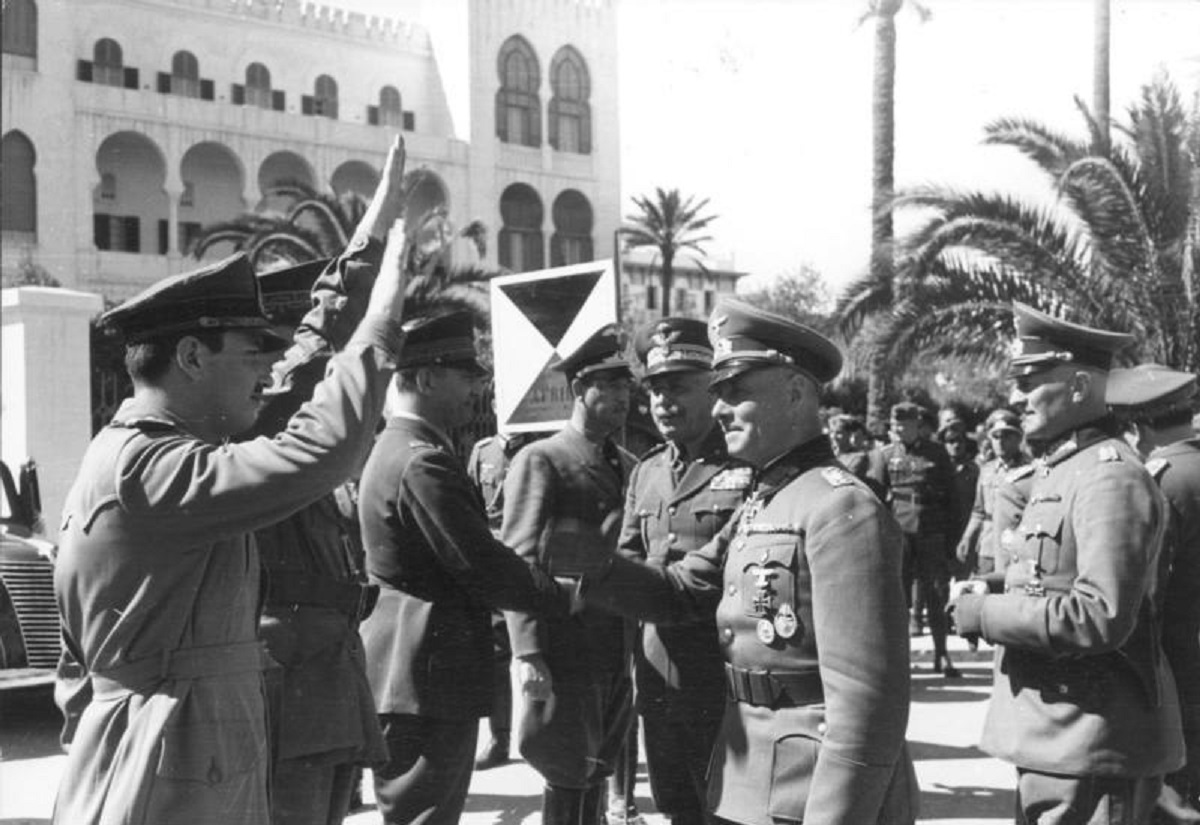Erwin Rommel with Italian governor of Libya, General Italo Gariboldi (on Rommel’s right), inTripoli, February 1941. Emily Anderson cracked the Italian codebooks, changing the course of the war in North Africa. Attribution: Bundesarchiv, Bild 101I-424-0258-32 / Sturm / CC-BY-SA 3.0
Emily Anderson, an Irish linguist and codebreaker, played a pivotal role in British military intelligence during both World Wars. Her story remained hidden for decades, only coming to light after the declassification of records in the 1990s.
Born in 1891, Emily Anderson was raised on the grounds of Queen’s College, Galway (now the University of Galway) by her parents Alexander Anderson, a physicist, and Emily Gertrude Anderson, a suffragist. She pursued modern languages, becoming fluent in German, French, and Italian, and studied in Germany after graduating from University College, Galway. Anderson was also skilled in mathematics and the classics.
Career in Codebreaking
In 1917, Anderson was recruited into MI11, a British military intelligence organization created during World War I.. Her family’s public support for British rule over Ireland, which was a key factor for an Irish citizen to be hired for a British military role at the time.
She was promoted to head of the Italian diplomatic section in 1927 and posted for several years to Cairo, Britain’s Middle East HQ in World War II. There, she cracked the Italian codebooks, changing the course of the war in North Africa. For her contributions, she was awarded the Order of the British Empire (OBE).
Anderson spent most of her life working as a codebreaker, including a year at Bletchley Park, that became the principal center of Allied codebreaking during the WWII. By 1945, three-quarters of the staff at Bletchley Park were women, many of them skilled codebreakers themselves, sometimes running teams and departments. Anderson was a top-ranked Bletchley Park codebreaker who helped the Allies defeat Germany and Italy.

Contributions to Musicology
Anderson’s work as a codebreaker was not her only passion. She also had a deep love for music, particularly the works of Beethoven and Mozart. Anderson is famous in musicology circles as being the first to effectively decipher the letters and diaries of these two composers.
She considered her “real work” to be the nights and holidays she spent traveling the world in search of the private correspondence of Beethoven and Mozart. Her translations of Benedetto Croce’s book on Goethe, The Letters of Mozart and His Family, and her Letters of Beethoven were published in 1923, 1938, and 1961 respectively. For her work on Beethoven, West Germany awarded Anderson the Order of Merit (Officer’s Cross First Class).
Her love for music and her contributions to musicology are commemorated in several ways. The Royal Philharmonic Society awards the annual Emily Anderson Prize to young violinists in Anderson’s honor. NUI Galway has named their concert hall the Emily Anderson Concert Hall in her memory. Music for Galway, in conjunction with NUI Galway, holds an annual concert in her honor.

Legacy
Despite her significant contributions to the war effort, Anderson’s story remained largely untold until recently. Historian Jackie Uí Chionna has begun to fill this void with her biography of Emily Anderson, titled “Queen of Codes: The Secret Life of Emily Anderson, Britain’s Greatest Female Codebreaker”.
Emily Anderson’s story is a testament to the crucial role women played in codebreaking during the World Wars, a narrative that is only beginning to be fully recognized and appreciated.
*The views and opinions expressed on this website are solely those of the original authors and contributors. These views and opinions do not necessarily represent those of Spotter Up Magazine, the administrative staff, and/or any/all contributors to this site.
